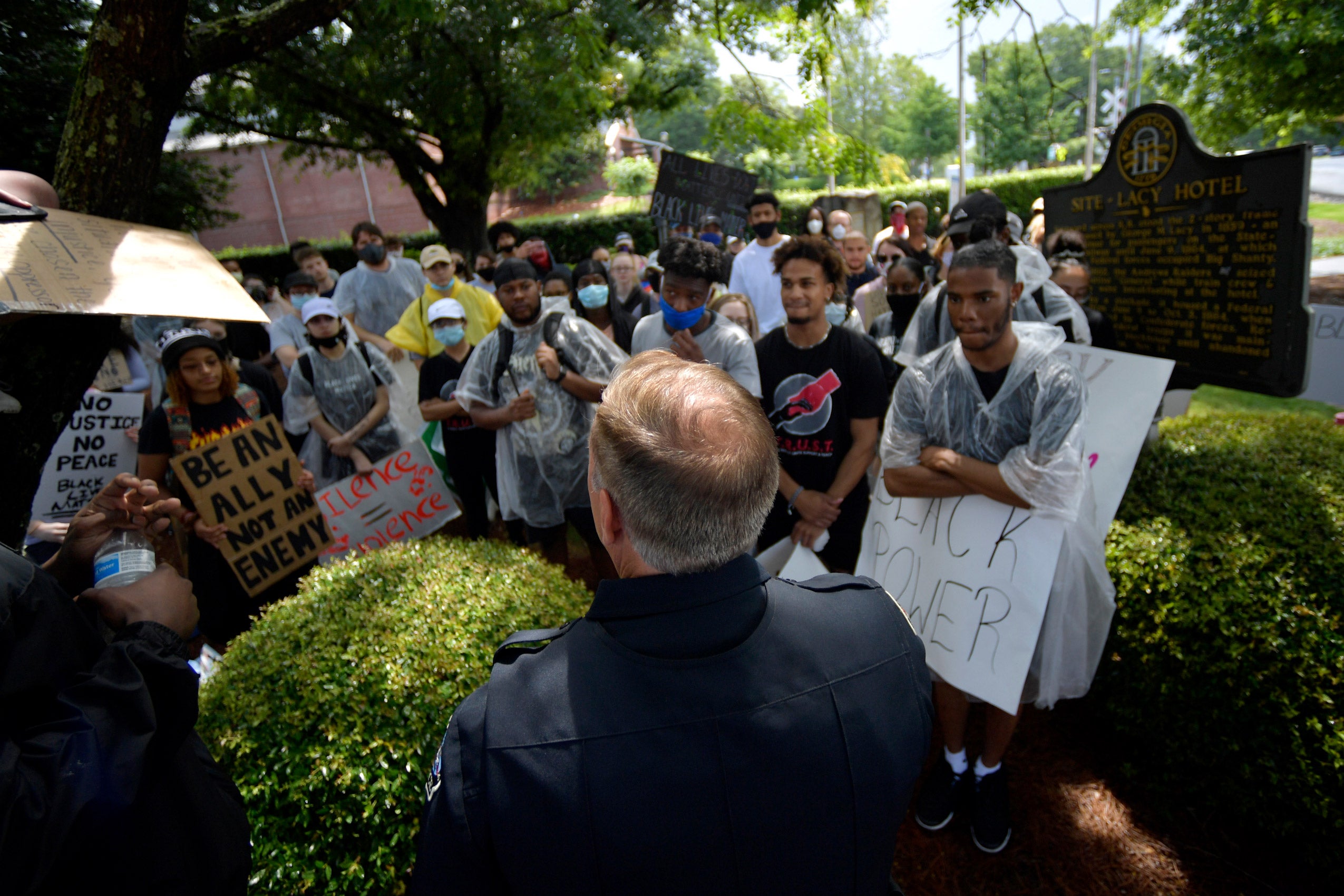More than 160 Harvard Law School professors and associates have signed an “Open Letter to Our Students and Community,” responding to recent statements and actions by President Donald Trump.
The letter, published in the Harvard Law Record student newspaper on Tuesday, condemns the president for his response to protests over George Floyd’s killing—specifically his tweeted pledge that “when the looting starts, the shooting starts,” and his threat to take military action against protesters.
HLS Professor Christine Desan took the lead in writing the letter alongside professors Kenneth Mack ’91 and Intisar Rabb, though she stresses it was very much a collective effort among many faculty members. “It’s a constitutional crisis when a leader can vow to use excessive force—which that statement on its face does—and on top of that, use a phrase that is identified with police brutality, and to align that with the U.S. military,” Desan said in an interview. “If he can make that kind of statement, which is clearly unlawful, and not have universal disavowal, then it is up to us to disavow it.”
The letter also dismisses President Trump’s efforts to walk back the “shooting” tweet 12 hours after it was posted and his claim that it shouldn’t have been read at face value. “When I thought about it, it’s even more reprehensible to do the walk back,” Desan said. “That’s exactly his strategy, to create a moving target and then to hide behind that ambiguity. And meanwhile the seed is planted among his followers.”
In a separate interview, Professor Rabb noted that the significance of this issue to lawyers and HLS students goes beyond President Trump’s tweets. “There was a triggering event, the murder of George Floyd and the string of excessive use of police force and the incarceration of black men. But these are really indicative of a larger problem of structural racism; a problem that accrues to the president and to all the institutional actors and public servants who help support it.”
“One thing we say is that we all have a collective responsibility to change an injustice when we see one,” Rabb added. “And lawyers have a heightened responsibility to that effect: When we become lawyers, we swear an oath to uphold the Constitution, and nobody ever comes to law school saying, ‘I want to be part of the problem.’ So, we’re really calling lawyers back to their roots, to the responsibility to address injustice.”
She feels that the letter serves two distinct purposes. “We hope that it will fill a void or clarify any confusion about whether the president and other public servants’ actions here are lawful. They are not, and they are an abuse of the offices that they have whenever they promote public violence. The other thing we really hope for is that it will galvanize every individual who stands for justice starting with lawyers to do everything in their ability to act.”
Professor Mack cited students as a motivating factor in his involvement. “We are a law school. We teach respect for the law and we teach the fundamental rule of law in a democracy,” he noted. “We have a teaching responsibility to our students so this was primarily directed to them as a way to make our position known, but it’s obviously going to be part of a larger set of public conversations, and the writers of the letter don’t shy away from that.”
Desan agrees that the letter needed to be written for her students’ benefit. “If there is a moment of constitutional crisis and we are silent, then I don’t think we are teaching our students about how to react.” She adds, “If you don’t speak out when someone threatens to use excessive force, then I don’t know when you’re going to.”
